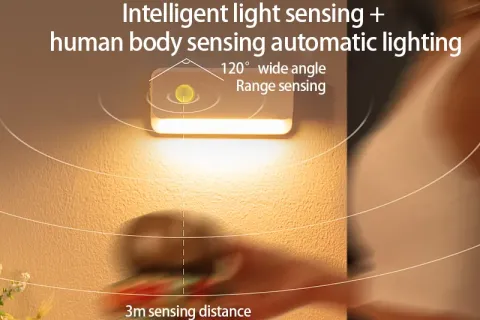In fact, most modern motion sensor night lights do not require professional electrician installation. Many motion sensor night lights use built-in batteries and feature convenient magnetic backing or adhesive patch designs, allowing users to install them themselves without complicated tools or electrician support.
Most motion activated night lights do not rely on WiFi to operate. They use built-in sensors and light-sensing modules for automatic sensing and illumination. This means that even without a WiFi network, motion activated night lights can still trigger illumination through motion sensing and automatically adjust brightness when ambient light is insufficient.
Factors that can interfere with motion sensor night lights: 1. Temperature fluctuations and heat sources 2. Air flow and swaying curtains 3. Electromagnetic interference 4. Light fluctuations 5. Sensitivity setting issues 6. Humidity and moisture 7. Animal interference
It depends on the area of the living room. Generally, a living room with an area of 20 to 30 square meters can be equipped with 1 to 2 motion sensor night lights for auxiliary lighting control; if the living room is large or requires zoned lighting, the number can be appropriately increased.
The sensor is blocked or installed in an improper position LED motion sensor night light relies on sensors to detect motion, and if the sensor's sensing area is blocked or the light is installed in an improper position, it will cause the sensing function to fail.
Placing LED night lights with sensors around the bed can significantly improve the convenience and safety of night life. For people who often get up at night or have difficulty in moving, LED night lights with sensors provide touch-free automatic lighting, without the need to fumble for switches, and conveniently return to bed or perform other activities quickly.
Unlike traditional night lights that need to be turned on and off manually, LED motion sensor night lights monitor the surrounding environmental conditions (such as light, movement, sound, etc.) through built-in sensors, and decide when to turn the light on and off based on these changes.







